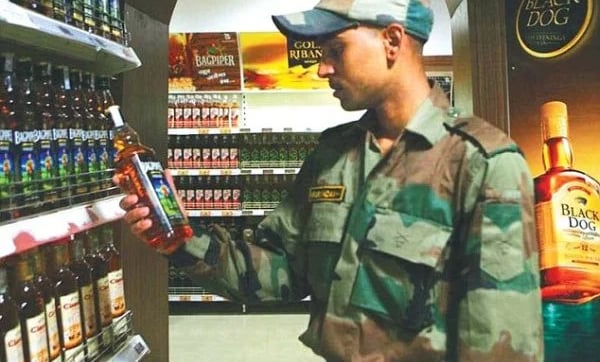read-grow.com
Army Veterans' alcohol addiction and its plausible solution.
Abhishek
10/11/2024


In the bottle's gleam, a promise made, To drown the sorrows, fears to fade. But with each sip, the shadows grow, A fire burns, a tempest blows.
The laughter turns to hollow cries, In the haze, truth wears disguise. Days blend into nights of dread, A silent scream, a heart that's bled.
How This Starts-
Taking an Example-
Imagine a young boy from a random village in India, with 12th as his highest qualification, getting enlisted in the army. He goes through rigorous training, and after his Passing Out Parade (POP), he is ready to serve in the Indian Army. As time passes, he becomes more immersed in the army culture. Soldiers who had never experienced alcohol abuse before start drinking casually.
However, once they begin drinking, soldiers tend to fall into two categories:
With some self-control
Without any self-control
The second category is concerning because these soldiers begin drinking more and more, eventually becoming addicted. While they are in the army, this may seem manageable due to the structured environment that keeps them away from society. However, the real problems emerge when they retire and return home.
Due to alcohol addiction, these veterans can become abusive, short-tempered, and less functional. Many develop alcohol-induced psychotic disorders. Often coming from less educated backgrounds, these soldiers and their families may not know how to address the issues, leading to a life filled with pain and suffering.
Addressing the Problem:
This problem can be addressed more effectively by creating a cohesive social structure to support alcohol-addicted veterans. Here are some steps:
Education During Training:
Incorporate lessons with real-life consequences of alcohol abuse into the training curriculum.
Regular Monitoring and Counseling:
Conduct regular alcohol consumption tests and counseling sessions during their service to prevent addiction.
Pre-Retirement Counseling:
Offer counseling sessions before retirement to prepare soldiers for life outside the army.
Awareness Through ECHS and Armed Forces Centers:
Create awareness about alcohol abuse and encourage affected families to share their problems.
Consultation with Psychiatrists:
Arrange both online and offline consultations with mental health professionals.
Rehabilitation and Accessibility:
Establish and promote rehabilitation centers, making them more accessible to veterans.
Societal Awareness and Support:
Raise overall societal awareness to positively cope with affected individuals and motivate them to quit alcohol.
Patience and Persistence:
Recognize that this is a long process requiring patience and persistence.
By implementing these measures, we can provide a better support system for veterans struggling with alcohol addiction, ultimately improving their quality of life and that of their families.
Related Stories
Get in touch
+91 7318426688
abhigarg28199911@gmail.com
Address- 61 Management Hostel, Banaras Hindu University, Varanasi (221005), U.P.
